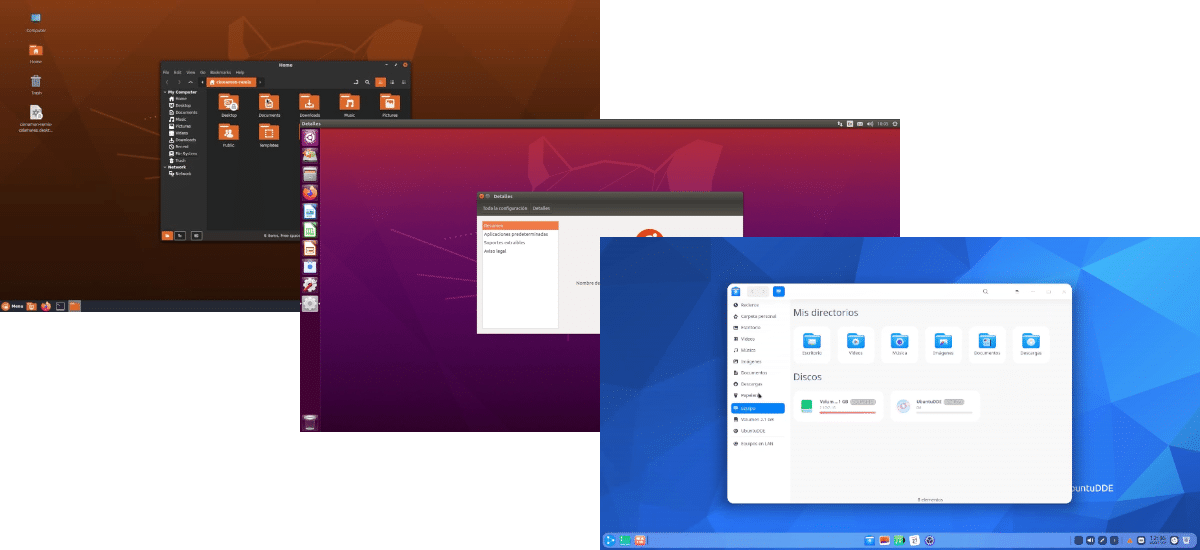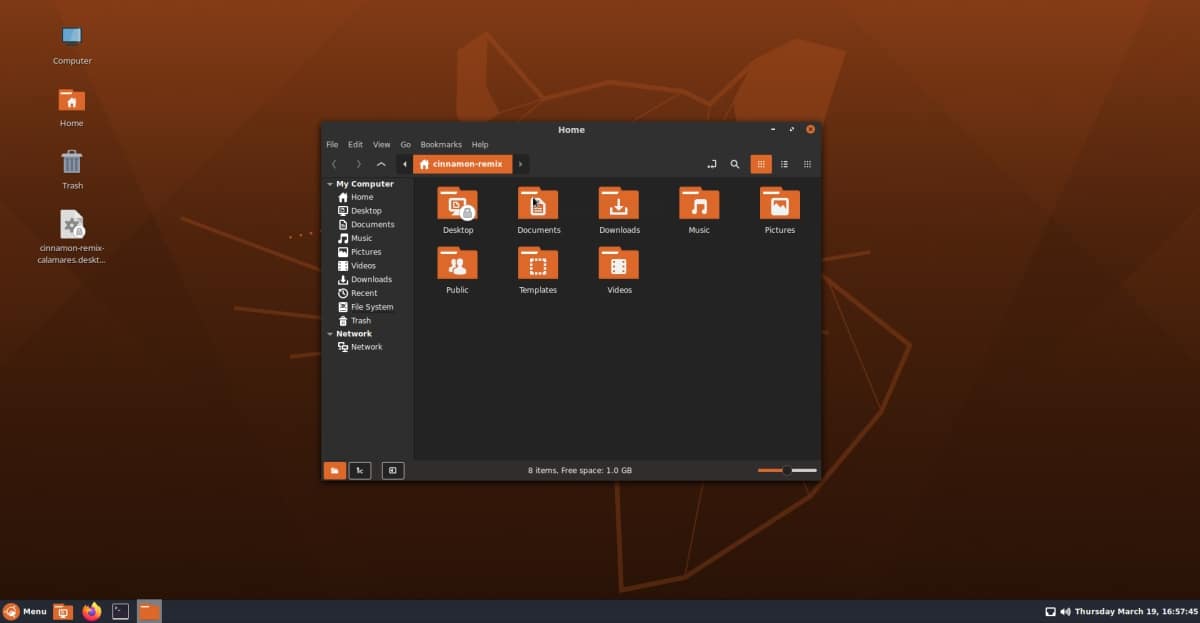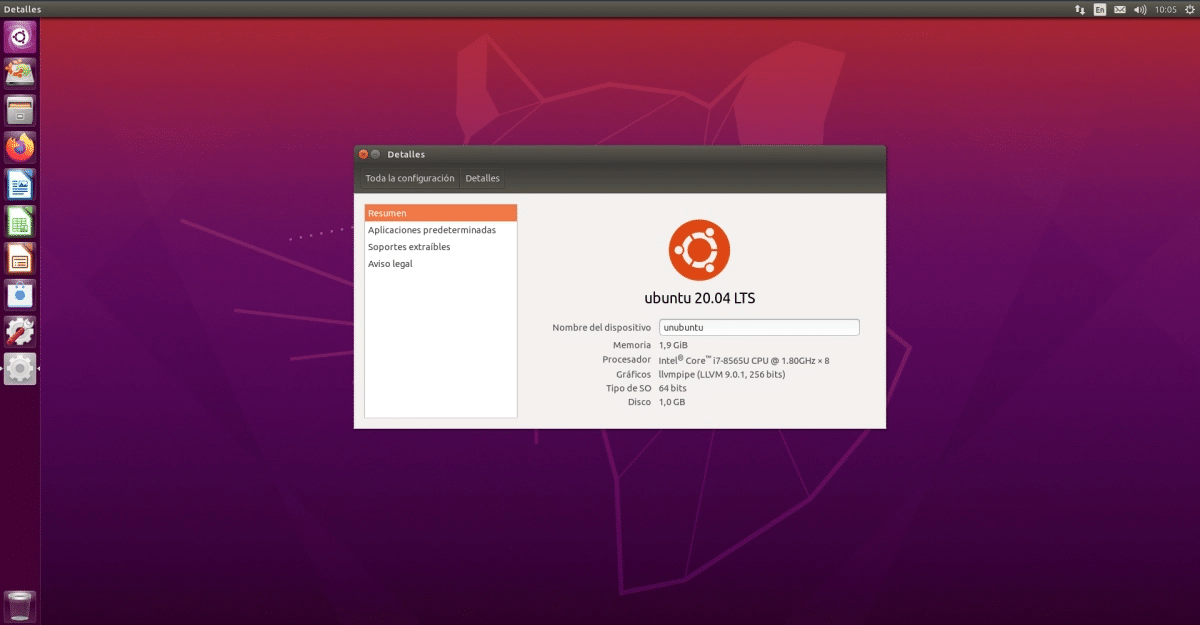
Without a doubt, and as statistics show, the most widely used Linux-based operating system is Ubuntu. But the operating system developed by Canonical is also available in seven other official flavors with environments or desktops KDE, Xfce, LXQt, MATE, Budgie, a version for the Chinese market and one for content creators. 8 versions in total that could go up to 11, or even 12, if the projects that are underway manage to become part of the family.
In this article we are going to talk to you about three of those projects, partly because I am surprised that we did not have much information about it here in LinuxAdictos. There will also be a special mention, but of a project that is a bit stopped because its developers have focused more on what they consider most important, which is nothing other than recover Unity environment and bring it back to Ubuntu as an official flavor.
Ubuntu Cinnamon: similar to Linux Mint, but under the Canonical umbrella

Powered by Linux Mint, the Cinnamon desk it has many followers. In fact, many users, as a server, switched to Linux Mint for at least a time when Canonical switched to Unity, as that graphical environment was embarrassingly heavy on discrete machines. One fine day, a developer decided that it would be a good idea to have an official version of Ubuntu flavored «Cinnamon», and for more than a year is working for that.
As for what would make it special or why it should be chosen over the Linux Mint in Cinnamon edition, this should be a decision for each one, but knowing that the official version will update its base before and that the applications will do it somewhat later, so that also would ensure greater stability. Otherwise, they would share much of the software, although the official flavor would use Canonical repositories. They would use the same graphical environment and applications, but everything as we have just explained.
Ubuntu Unity: the return of what for many should never have started

What can we say about this flavor? Actually, little. Canonical gave up the environment more than two years ago, although other projects such as UBports continued with its development for its operating system for mobile devices. Unity has continued to evolve, but what we will have when installing Ubuntu Unity will be basically the most current Ubuntu 18.04, that is, GNOME apps mostly driven by the Unity desktop, one somewhat better than the one Canonical left behind.
UbuntuDDE: Linux can also be nice after installation from scratch
For (almost) last we UbuntuDDE, another one that is currently working to become an official flavor. Personally, of the three mentioned in this article, this is my favorite, and it is because it uses a graphical environment and applications that are much less visible, so it is a breath of fresh air. The desktop you use is Deepin, which began developing Deepin Linux almost ten years ago, and is one of the most visually attractive that you will find in Linux.
As you can see in the previous video, UbuntuDDE has a much more modern interface than the popular Plasma or GNOME, and is told by someone who is a happy user of what KDE offers. Taking into account that everything is like this after the installation of zero or "out of the box", it stands out for its dock, for its app launcher that we can use in three different ways and for many of its applications, some from the same Deepin project that they have a clean and simple interface. In addition, it includes interesting tools by default, such as Cloning the operating system or screenshots, which also allows us to record the desktop.
Bonuses: Ubuntu Web
As we had advanced, 8 can be added to the 4 that exist, and the fourth flavor is what is currently known as Ubuntu Web. There is very little information about it, partly because it is being developed by the same people who are working on Ubuntu Unity, but it is known that it is intended to be a open source alternative to Chrome OS of Google. The main difference is that Ubuntu Web will be based on Firefox, not Chrome, but the idea is the same.
With so much flavor and all these on the way, I know that many are thinking what they always think, that this is the bad thing about Linux, so many versions and so different, but many of us think that this is fine, that we can always find the perfect system for us. Are you glad these projects are being developed or would you prefer there were fewer options and less "fragmentation"?
I have no problem with "fragmentation", or rather I would say variety of options and competition between projects. I am especially happy about the Unity 7 project; I have been a Unity user since its inception. When canonical change unity to Gnome shell, I thought to abandon ubuntu, but since they left it in the repositories I decided to stay in ubuntu while unity was available. Then there have been initiatives to maintain Unity, but until now all have been abandoned; I hope this time it is possible and this project is viable.
I have an installation of the unity of the repositories and another with this new Unity that I installed as soon as it was available.
regards
Too much fragmentation, it is better to focus on a single large-scale modifiable product seeking to satisfy whims and needs than to continue expanding the concept of more of the same over and over again.
What product are we going to focus on? Not for influence, but I like Cinnamon.
I never saw fragmentation as an impediment, quite the contrary. Regardless of the desktops that you have, the majority of users will keep the two main ones, the rest usually have anecdotal quotas so they do not significantly influence the main ones. The good thing is that all these minority versions are a source of ideas and innovation that end up, if they like, added to the main ones.